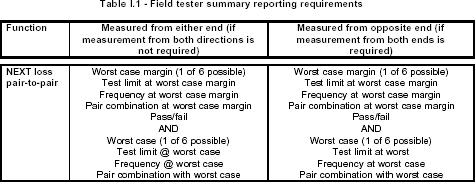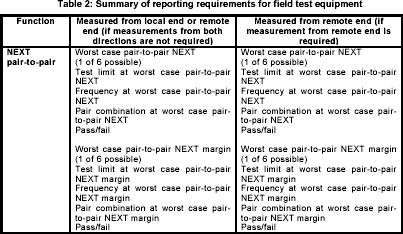Worst Case Margin vs. Worst Case Value - DTX CableAnalyzer
| When looking at a test report, you will see two values reported for a given parameter such as NEXT. An example is shown below:
For the main unit, the worst case margin is 6.7 dB, but the worst case value is better at 8.7 dB and on a different pair! How can there be two values reported? This is a requirement of ANSI/TIA-568-C & IEC61935-1. Calculating Worse Case Margin This is the easier of the two to explain. Looking at the NEXT graph for this test.. 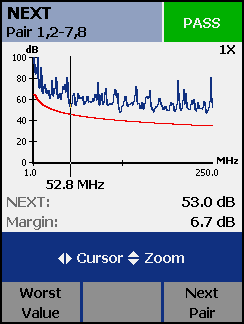 .....the DTX is looking to see where the NEXT trace (blue) came closest to the limit line (red). This happened at 52.8 MHz and the margin was 6.7 dB; as report above. However, this is not the worst value of NEXT. Calculating Worst Case Value This is a little trickier to understand. Lets take the same trace above and remove the limit line for a moment. 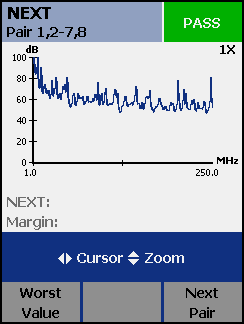 There are series of questions the DTX has to ask about this trace. First, what is the worst value of NEXT and at what frequency does it occur? 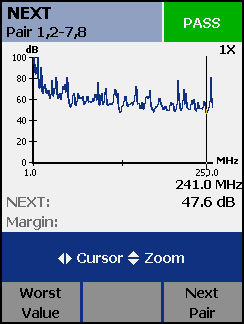 Looking at this trace, the worst value of NEXT was 47.6 dB and occurred at 241.0 MHz. Secondly, what is the difference between this worst value of NEXT (47.6 dB) and the limit line? We need to put the limit line back in to find out: 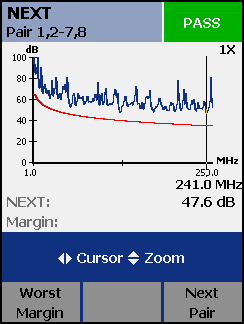 The worst value of NEXT was 47.6 dB; the limit at this frequency of 241.0 MHz was 35.2 dB. Finally, now we have the worst value of NEXT (47.6 dB) and the limit line (35.2 dB), we can calculate the difference between the two (margin); 12.0 dB. 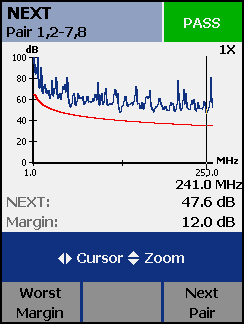 This is why you often see two different margin values for Worst Case Margin and Worst Case Value. This only leaves one final bit of confusion to be resolved. In the example above, the worst case value was on a different pair. This is because the values are obtained by asking:
ANSI/TIA-568-C refers to ANSI/TIA-1152 4.2.4 Summary results Detailed information may be required or desired in certain circumstances. In general, summary performance information is sufficient. The field tester shall be capable of reporting the summary information in Table 1 as a minimum.
IEC61935-1 5.4.3 Summary results Detailed information may be required in certain circumstances, however, in general, summary performance information is sufficient. The field test equipment shall be capable of reporting the minimum summary information as shown in Table 2.
|


